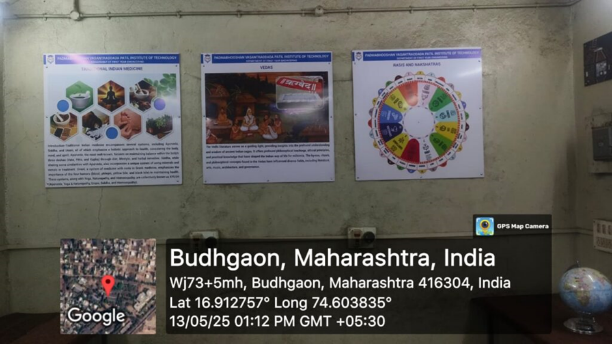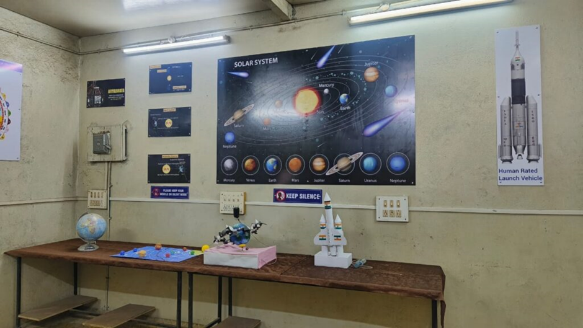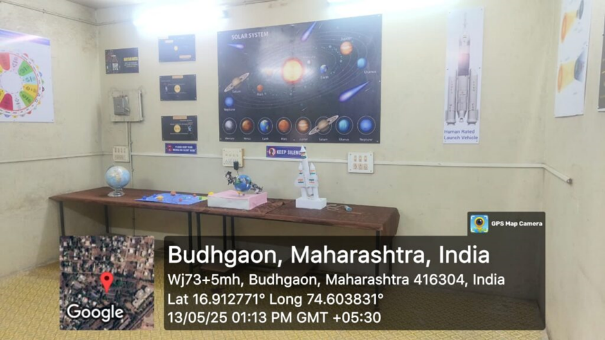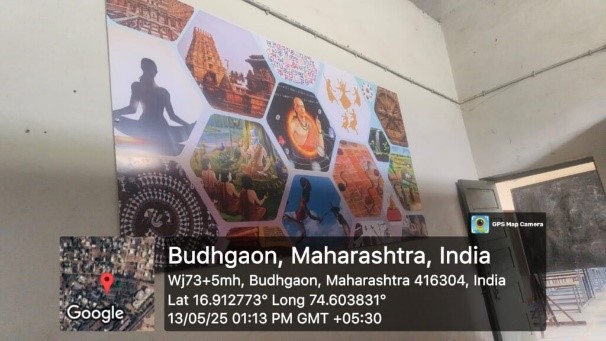First Year Engineering
Indian Knowledge System (IKS)
The Indian Knowledge Systems (IKS) Lab
The Indian Knowledge Systems (IKS) Research Lab at PVPIT has been established with the vision of integrating India’s ancient astronomical knowledge with modern scientific and engineering methodologies. As per the principles of the National Education Policy (NEP) 2020, the lab is focussing on reviving, analysing, and reapplying traditional Indian astronomy for educational and technological innovation. The lab is designed for a creative hub where students will explore the intersection of ancient wisdom and modern tools, encouraging innovation and cultural pride.
Vision
To prepare a generation of engineers and scientists who are deeply aware of India’s astronomical heritage and capable of applying ancient knowledge to modern scientific challenges.
Mission
• To promote awareness of India’s contributions to astronomy.
• To integrate ancient astronomical practices with modern tools like AI, simulation, and robotics.
• To encourage project-based learning focused on indigenous astronomical systems.
• To inspire research in traditional observatory architecture, timekeeping systems, and cosmological models.
Objectives of the Laboratory
• To learn and document ancient Indian astronomical texts and observatory designs.
• To simulate ancient star charts and planetary models.
• To foster interdisciplinary research combining astronomy, history, mathematics, and engineering.
Lab Infrastructure and Resources
Lab area: 32.9255 Square meter
Knowledge Resources
Access to ancient texts: Surya Siddhanta, Aryabhatiya, Brahmasphutasiddhanta
Digitized manuscripts and translated versions for student research
- S. Balachandra Rao, Indian Astronomy – An Introduction, [PDF].
- Indian Astronomy, [PDF].
- B. V. Subbarayappa and K. V. Sarma, Indian Astronomy: A Sourcebook, [PDF].
- RNI, Vedic Astronomy, presented at the International Conference on Oriental Astronomy (ICOA), [PDF].
- S. N. Sen and K. S. Shukla, History of Astronomy in India, 2nd ed., New Delhi, India: Indian National Science Academy (INSA), 2001.
- Suryasiddhanta, Surynarayan Zaa, [PDF].
Key Activities and Projects
•Ancient Timekeeping Systems
Research and practical implementation of water clocks, sundials, and nakshatra-based calendars.
• Star Chart Digitization
Using modern tools to decode and digitally map traditional star charts and planetary paths.
Star Chart Digitization
Using modern tools to decode and digitally map traditional star charts and planetary paths.
• Celestial Event Prediction Models
Creating algorithms based on Aryabhata’s and Bhaskara’s principles to predict eclipses and planetary positions.
Future Roadmap
- Establishment of a Mini Planetarium
In collaboration with the Physics Department, a state-of-the-art mini planetarium will be established to provide immersive learning experiences in astronomy and space science. - Launch of Certificate Courses
Certificate programs will be introduced on “Traditional Indian Astronomy and its Modern Applications”, blending ancient knowledge systems with contemporary scientific perspectives. - Community Outreach and Early Engagement
The Innovation Creation Lab will be made accessible to aspiring students from local schools and junior colleges, aiming to cultivate early interest in innovation, astronomy, and scientific inquiry through hands-on exposure and guided exploration.
The IKS Research Lab at PVPIT is ready to make significant strides in blending India’s ancient astronomical brilliance with modern technological tools.
By fostering interdisciplinary learning, cultural awareness, and innovative problem-solving, the lab stands as a model for NEP 2020 implementation and a beacon of India’s timeless scientific wisdom.




